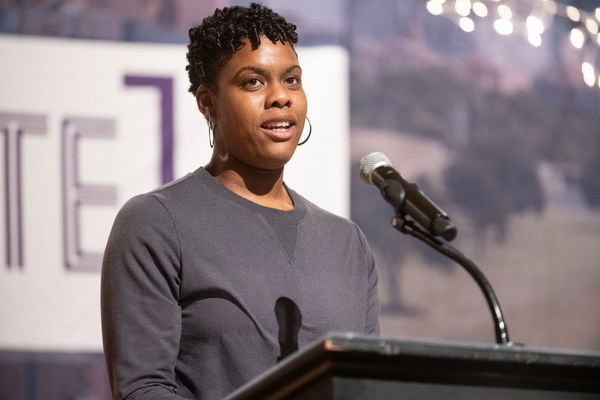“Social workers sit at the juncture between those with too much power and those with not enough.” - Gloria Steinem
In most situations, being a “middleman” isn’t something that any person—or organization—strives to become. But in LEO’s quest to help people move permanently out of poverty, that’s exactly where we want to be. Why? Because we believe that nonprofit service providers are best suited to deliver change and policymakers best positioned to scale change across the country. But first they need to know what works and why. That’s where LEO—and objective research—comes in.
Similarly, our nonprofit partners must rely on their staff to deliver their theories of change to those experiencing poverty. Throughout 90 LEO partner organizations across the United States, these employees have a wide variety of talents and approaches, and sit between well-intentioned donors, managers, and those in need. These integral people in the middle are known broadly as “social workers,” and this is the story of how research has impacted their approach.
This is one of a three-part series about the intersection of research and social work. Read the other stories about Practice Makes Perfect and Santa Clara County.
--
Jasmine Batiste is a social worker and case manager for an innovative program called PaduaTM at Catholic Charities Fort Worth in Texas. Unlike most piecemeal approaches to solving poverty, Padua attempts to tackle the symptoms of poverty holistically. How? For starters, by enlisting people like Jasmine, a trained counselor, who can provide more in-depth coaching and support than the traditional case manager. Additionally, Catholic Charities Fort Worth (CCFW) actually gives people like Jasmine enough bandwidth to intervene in meaningful ways—Padua’s case managers have half as many clients (~18 on average) as is typical in the industry.

Batiste’s job is to help her clients tear down mental barriers standing between their current situation and their goals. These dreams are often lofty: most Padua participants are single parents with their eye on a stable income, a degree, and permanent departure from poverty. To help her clients achieve these goals, Jasmine’s focus is on generating emotional, mental, and spiritual health that can sustain them over the long term.
But as Padua launched, it was Jasmine herself who was unsure about the long term: were the outstanding results she had seen among her clients typical across all case managers? Or was all of her hard work unique, or unscalable?
“At first, I thought it was just going to be a temp job,” Jasmine said, thinking back on her early days with Padua and laughing. After all, Padua was an experiment based on the accumulated experience (and frustrations) from all levels of social workers inside CCFW. But after the first set of results from the research partnership between LEO and CCFW were released, she could breathe a sigh of relief. Seeing the impact the program as a whole was having upon such a vulnerable population gave her a new sense of confidence in her job.
Social workers like Jasmine typically face an impossible tradeoff: fully address the needs of a few clients, or partially solve those of many. Typically, social work is not a scalable intervention. CCFW’s partnership with LEO helps change this dynamic by arming social workers with the evidence that their approach is working, and by giving them confidence that their hard work can create the playbook for scaling impact across the country.